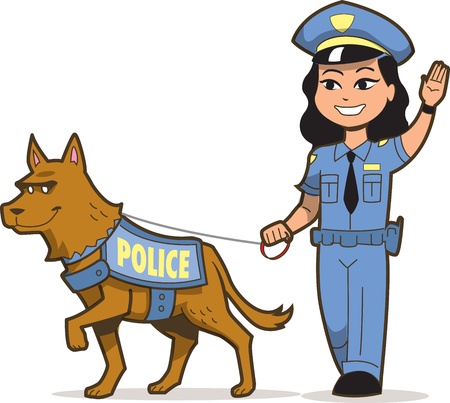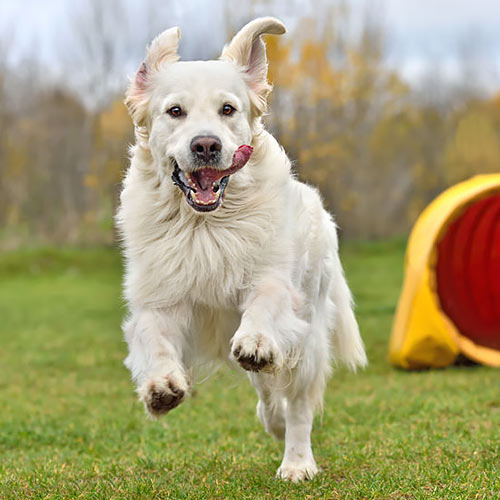So, you’re interested in becoming a police dog trainer. Here at Dog Trainer College, we have lots of experience training police dog trainers, and the first thing you should know is that police dog handling is certainly not for everyone. It can be very difficult, frustrating and even dangerous at times. Trainers and handlers have to stay focused and calm in stressful situations.
Despite this, handling and training police dogs is, of course, very rewarding work. If you’re committed to joining this prestigious group of animal trainers, there are a few things you should know first.
 Know the Police Dog’s Primary Mission
Know the Police Dog’s Primary Mission
What do police dogs actually do? Well, they perform a great many different functions but their first priority is to track and locate suspects and/or any evidence they can find. In addition to this, they’re also highly useful in situations where there is a missing person, hidden drugs, possible explosive devices or a potentially violent situation. One of the unexpected, but important, jobs of a police dog is to give occasional demonstrations to boost support for K9 programs with the public or even serve as a calming anchor for a lost or distraught child. This will require that the dog you train maintains a calm demeanor when interacting with others, and balancing the dog’s ability to search with compassion and friendliness and also to pursue with intensity.
Patience Is a Necessity
Training police dogs requires a special amount of patience and a ton of knowledge!. Getting frustrated is simply not an option. First of all, lack of patience with the dog or disappointment in the results of a search can be detrimental to the relationship between dog and handler – something that is of the utmost importance if you two are going to be successful. If you show impatience during training, the dog may carry its reactions to those disappointments into their relationship on the force. You have to maintain composure and professionalism, even when it’s difficult.
For the Dog, Work Is Play
For the humans involved in any situation where a police dog is required, it’s obviously very stressful. There might be a missing child or a dangerous suspect. But it’s important to remember that, for the dog, this is about play. A police dog wants to be having a good time like they’re playing a game, and the only way to train dogs successfully is to associate desired behaviors with things they like and enjoy. If they do something good, they get a reward, for example. Since handlers often have a personal relationship with the police dog as well as a professional one, it’s important to make sure that the relationship is a positive one. By praising the dog for good behavior and establishing that kind of positive reinforcement during your training, the dogs you train will have more positive results in the field.
Becoming a police dog trainer is a serious undertaking that deserves committed and passionate individuals who are willing to dedicate the time and attention needed. These dogs help the men and women in blue keep streets safe and solve cases, so it’s important that you are dedicated as they are to keeping the community safe. If you think you have what it takes, we offer highly effective and professional police dog trainer programs that will prepare you to train effective and efficient animals. To learn more, call us at 812-650-2394.

 Know the Police Dog’s Primary Mission
Know the Police Dog’s Primary Mission